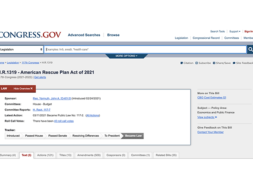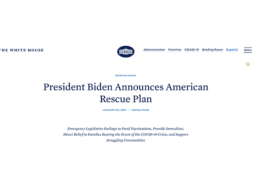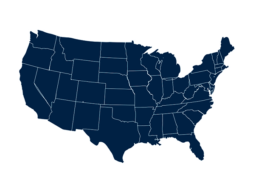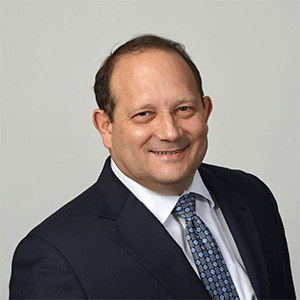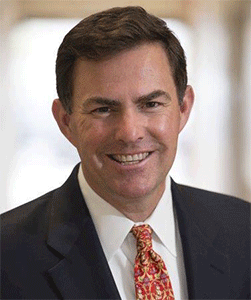
How to Protect Title IV Schools From an Increasing Number of False Claims Act Lawsuits
Written from a presentation by Steven Gombos and Jacob Shorter, Gombos Leyton and Eric Bing, CEO, The College of Health Care Professions
For 15 years, Title IV schools, and for-profit colleges in particular, have been falling victim to the False Claims Act at increasing rates. It’s a trend that shows no sign of slowing.
“The American Bar Association reported recently that the FCA is one of the fastest-growing areas of civil litigation,” said Jacob Shorter, an associate at Gombos Leyton, a law firm based in Virginia. Shorter said more than 760 new FCA matters were filed in 2018, the ninth consecutive year that exceeded 700 new FCA cases filed.
What is the FCA and who does it impact?
The FCA is a civil statute that allows both the government and private qui tam relators, or litigators, to bring allegations of fraud against individuals and entities who defraud the U.S. federal government.
Most industries are subject to the FCA because nearly every industry participates in some way, shape or form in a government program, or receives government dollars.
“Every entity that is involved in any industry that receives federal money is at risk,” Shorter said, adding that almost half of the 50 largest companies and about 20 percent of the Fortune 500 companies have settled FCA lawsuits.
Under the legal definition, the FCA poses liability for any person or entity who knowingly presents, or causes to be presented to the federal government, a false or fraudulent claim for payment or approval, or who normally makes, uses or causes to be made or used a false record or substantial statement material to a false or fraudulent claim, Shorter said.
Typically, a FCA claim can be broken down into four elements:
- Presentment: Did you give a claim for payment to the government?
- Falsity: Was that claim false or fraudulent in some way?
- Knowledge: Does the person or entity who submitted the claim know that it is false or fraudulent?
- Materiality: Was it important or critical enough to the government that it would have, or likely would have, affected the government’s decision had it known the claim was false?
In short, the FCA reaches any demand or request that causes the federal government to disburse money that it was not obligated to pay. It can include the program participation agreement (PPA) a college enters, the G5 certifications that schools submit when they pull down money out of the G5 system, and required management assertion letters that schools complete on a yearly basis.
The FCA originally targeted claims that were factually false, such as a contractor paying $1,000 for 100 pounds of wheat when the business only supplied 90 pounds, Shorter said. But courts have developed several categories under the FCA to keep pace with the government’s growth since the FCA was enacted in 1863.
“Using the PPA as an example, you are certifying compliance with the entirety of Title IV statutes and the regulations that go with it,” Shorter said. “You make a claim for payment under that agreement, and you are either expressly or impliedly certifying that you are in compliance with all the requirements incorporated in the PPA.”
What makes a claim false or fraudulent?
It can be something that is false, or the deliberate ignorance of the truth or falsity of a claim. So if a CEO or compliance officer simply turns his or her head and doesn’t look at things that might be problems, that could show reckless disregard, Shorter said.
A 2016 Supreme Court case called Universal Health Servs. v. United States ex rel. Escobar, 136 S.Ct. 1989 (2016) touched on materiality. “What it tells us is that a false statement or fraudulent course of conduct is material under the FCA, if it would likely affect, or actually did affect, the government’s payment decision, said Shorter.
The scope of liability for violating the FCA can be enormous, he said.
“An individual entity that violates the FCA faces liability of having to pay the damages the United States suffered times three,” he said. “Mandatory civil penalties can range from $5,000-$11,000 per violation and the relator’s attorney’s fees can be several million dollars.”
Who files FCA suits?
Private litigants file disproportionately more False Claim Act cases than anyone else, at around 80 percent, Shorter said. In addition, the FCA encourages private parties to bring FCA lawsuits by sharing the spoils – between 15-30 percent of any recovery – with the private litigant who filed the action.
“When we started with the FCA, it was understood it was going to be initially brought by a government employee from the Department of Justice,” he said. But that changed in 1986 with qui tam provisions.
“Congress determined that private litigants can file suits under the FCA on behalf of the government as a way of making fraud easier to ferret out,” Shorter said. “Employees who work for a company have a better idea of what’s going on than the government does until they come in. So the idea is to capture more fraud and more fraudulent activity by allowing any person who has knowledge of a false or fraudulent claim to file suit on the government’s behalf.”
In 1987, the first year after the qui tam provisions went into effect, Shorter said about 375 FCA cases were filed. “And only 30 of those were alleged, or brought by a qui tam relator, so it was disproportionately on the government side,” he said. “But since then, the numbers have completely flip-flopped. “In 2017, about 825 new FCA matters were filed, and all but 145 of them were brought by qui tam relators.”
Typically, the relator is a disgruntled current or former employee of the company being sued, Shorter said. A recent study also showed that lower-level employees are more likely to be relators. In the education sector, the relator is typically someone from the university’s admissions department.
Since 2006, higher education has been a consistent target of the FCA, Shorter said.
“We’ve seen an explosion of cases coming after for-profit colleges, starting with incentive compensation cases…” he said. “But they’ve gradually moved out of the incentive compensation ban and are really touching on every aspect of the Title IV school.”
From 2016-2018, Shorter said at least eight higher education institutions facing FCA lawsuits have entered settlement agreements or had judgment entered against them for a total of $145 million. The focus of most of those FCA lawsuits against colleges involved recruiting practices, but Title IV regulatory non-compliance could give rise to FCA liability, he said.
“As one example, earlier this year Duke University entered a settlement agreement for $112.5 million to bring to resolution an FCA suit they were facing based on allegations that they had lied in research applications to get grants from the federal government,” Shorter said. “So it’s not just for-profit schools; it’s all Title IV schools.”
FCA typical allegations and examples
For career and for-profit schools, it’s typical to see allegations of ghost students, falsified Ability to Benefit results and falsified high school diplomas. But Shorter said false certifications, where you certify a statement such as that you have not paid any of your admissions staff, either directly or indirectly, commissions or bonuses based on their success to enroll students, are also common. It is also common in G5 certification, the Department of Education’s grants management system, and fraudulent inducement such as in grant applications and PPAs.
FastTrain II Corp. is an example of a factually false claim in the Title IV context, and was hit with both criminal and FCA suits.
In 2017, a U.S. District Court judge entered a final judgment of more than $20 million against FastTrain for submitting falsified documents to obtain federal student aid funds. At its peak, the company operated seven Florida campuses.
Shorter said FastTrain provided false documentation that students had high school diplomas or their recognized equivalent. “The allegations were essentially that admissions staff were falsifying those documents, or encouraging students to falsify those documents, to allow them to get into school and start drawing down Title IV funds,” he said.
Fraudulent inducement is usually seen in the context of grant applications and PPAs. “It’s the idea that the Department of Education would not countersign your PPA had they known that you were engaging in some fraudulent course of activity,” Shorter said. “In those cases, the theory is that the PPA itself is a false claim and every dollar of Title IV money that was paid out under that PPA – whether it’s three years, four years or five years – each one becomes a False Claim that defrauds the government.”
For example, allegations were made against Weston Educational Group that the college altered grades and attendance records before and after it entered into a PPA agreement. The proper and efficient administration of funds is just one clause out of hundreds of requirements in Title IV, but on that single basis, the court concluded that the PPA the school entered was fraudulently induced and that every Title IV dollar that was paid out under that PPA was the product of fraud, Shorter said.
Lastly, more and more companies are seeing allegations of false certification. Relators often allege that schools make express false certifications; typically, that a school falsely certified in its management assertion letters that it had complied with specific Title IV statutory provisions, like the incentive compensation ban, when it did not. More often though, we see allegations of implied false certification, which typically relies on the G5 certification, Shorter said.
“The theory goes that every time you have money pulled down from G5, you’re certifying that you’ve done it conditioned upon your program participation agreement and its rules, which incorporates the entirety of Title IV statutory provision and the regulatory provisions,” Shorter said.
For example, the court concluded that each time the Lacy School of Cosmetology withdrew funds from its G5 account, without complying with certain Title IV requirements, it submitted false claims for payment, Shorter said. Each one of those became the basis for an FCA liability.
These things can have cascading effects throughout different aspects of your company, often far beyond what you immediately see. Shorter said Borrower Defense to Repayment (BDR) reporting is going to become an issue with these types of suits, as well as increased risk of letter of credit demands and the stigma of bad publicity as lenders clamp down as these cases become public.
Some good news on the FCA
There is some good news for for-profit schools, however, that comes out of a Utah case. Shorter is hopeful that more courts will develop a similar, rigorous approach.
“The court did a much deeper dive into what Title IV requirements actually say, and concluded that the U.S. failed to allege adequately that the college’s request for payment in the G5 system were either expressly or impliedly false,” he said. The United States had argued, based on the G5 certification, that when the school violated the ICB it was no longer an eligible institution. Thus, their students were not eligible students and they couldn’t get Title IV funding.
But the Utah court concluded that students don’t become ineligible for funds simply because a school violated a requirement.
“The Secretary has enormous discretion to determine whether the schools continue to participate in Title IV programs, whether they’re fined and whether there are issues of liability,” he said. “Based on that, the court said the G5 is not a legally sound theory…”
How to avoid FCA suits and lessen your risk?
Most FCA lawsuits against higher education institutions focus on the PPA institutions must enter to participate in Title IV programs. The PPA includes conditions each institution must meet for initial and continued participation in the federal student financial aid programs on compliance with all Title IV legal requirements.
The risk of FCA suits to colleges is so extreme that Eric Bing, CEO of the College of Health Care Professions, said they take an overall philosophy of being extremely vigilant and emphasize continual training.
“From our standpoint, you want to be very careful with who you are hiring and really make sure you’ve done your background checks. All your employees need to be highly ethical and fully focused on the student,” he said. As you train new employees, make sure they are trained in all the pieces that they’re engaging in with the PPA. Bing said it’s also important that training doesn’t stop, but that there is a continual review and that you document those reviews.
Doing a major program review is another good method, Bing said. Make sure you have an outside third party view what’s happening in your institution, including training, he said.
Steven Gombos, Senior Litigation Partner at Gombos Leyton, said if your school is so small that you don’t have an HR department, you still need to have someone who can make those decisions and make sure you have a consistent policy. In addition, that person also needs to be plugged into the major areas of your school business, including admissions and financial aid, he said.
Bing and CHCP immediately address employee issues, and document what the complaint is and what they’re doing about it, Gombos said. CHCP also asks employees on a regular basis if they are seeing anything in the organization that could be an issue. And if someone leaves your company, Gombos recommends you get that employee to sign a form that they’re not aware of any impropriety in the regulatory area.
“I have clients say ‘Steve, I don’t want to get that because they’re angry and they’re leaving.’ I say if they tell you no, you tell them to tell you what they’re aware of,” he said. “Look into it. Prove it to be false now so you’re not doing it in a courtroom later.”
Under the FCA, the statute of limitations is six years. But claims can go back to 10 years, if they are brought within three years of the date the federal government knew about the violation.
“You look at six years back from today and you may have had five or six bad eggs working for you that left, and it’s going to be hard to combat that,” Gombos said.
Shorter agreed, particularly since many qui tam complainants are disgruntled employees. “Find out what issues they have before they depart your school, before they meet with an attorney, and before they bring the case against you,” he said.
Secondly, tackle any issues that former disgruntled employees have. “That goes a long way to undermining this idea that you had actual knowledge you were doing something wrong,” he said. “You figured it out and you fixed it as soon as you could. Those are both key strategies to lessening your risk of a FCA lawsuit.”
The worst part of the FCA is that you don’t need intent to commit fraud, Gombos said.
“At law school, we learn that fraud is an intent and it’s a willful corrupt violation,” he said. “But with the FCA, it’s not. You can be reckless. You can be sloppy to a point where it becomes a jury issue to determine if you knew something because you didn’t act appropriately, Gombos said. But it would be the opposite of being careless if you document and investigate allegations, he added.
So what are the main steps to lessen the risk of FCA liability? The answer is multifaceted.
“Top-down compliance, strategic use of self-disclosures to the Department and to accreditors, audit compliance internally with key Title IV obligations before PPA entry and use of program reviews and accreditation visits as opportunities to build positive records for yourself defensively,” Shorter said.
Being vigilant, as well as proactive when you see any type of situation developing, will also help, said Bing. You need to get ahead of situations before they get out of control, whether with an employee or a student.
You also need to check your insurance and make sure you are with an agency that understands the education space. “Getting with somebody who really knows what is going on is important,” Bing said. “You could end up thinking you have insurance when you really have nothing.”
In addition, you should write and specifically ask your broker that if you were sued under the federal FCA, would you get reimbursement for attorney’s fees or for your defense funds, Gombos added.
Winning FCA arguments
One final case that reinforces how important it is to be proactive in compliance efforts is Kaplan University, which faced incentive compensation ban allegations.
The court basically found the qui tam plaintiff could not show all the elements of an FCA suit, and in particular, the knowledge requirement. The reason they said that is because the school had several compliance efforts that basically protected them from the FCA suit, Shorter said
“They had taken their written compensation plan and got an outside legal review,” he said. “They had gone through the effort of auditing phone calls with their admissions staff to make sure they were doing what they were supposed to do and were told to do. They had an outside party come in to make sure payments under that written compensation plan were actually paid how the plan said they were supposed to be paid. They had regular meetings with their top management level about compliance and about the program to make sure that the written program was being instituted the way it was supposed to be.”
Looking at those facts, the court said you can’t show Kaplan University had knowledge, deliberate ignorance or reckless disregard that they were violating the ICB, Shorter said. “They made those top-down efforts to ensure that they were compliant.”
This article was written from a presentation by attorneys from the law firm Gombos Leyton, P.C. The presentation provided general information about the False Claims Act and does not constitute legal advice. Neither the presentation nor this article create an attorney-client relationship with Gombos Leyton, P.C. If you need legal advice, please feel free to contact one of Gombos Leyton’s attorneys directly.
STEVE GOMBOS’S practice focuses on strategic planning. He has over 28 years of litigation experience, including trying 75 cases in federal and state courts and arguing appeals in six federal circuit courts and the Supreme Court of Virginia.
As Gombos Leyton’s senior litigation partner, Steve litigates cases in a wide‑range of areas, with a particular focus on the False Claims Act and white-collar defense, higher education law, and government contracts. Steve also has extensive experience conducting investigations involving allegations of civil fraud, white-collar crimes, and regulatory violations, and assisting clients in responding to civil investigative demands and government subpoenas. In addition to those areas, Steve has represented business clients in actions alleging business torts, intellectual property, breach of fiduciary duty, corporate governance, and data breach matters.
Steve uses his extensive business and litigation experience as outside general counsel to businesses that regularly contract with the government, assisting clients with developing internal compliance programs, policies, and long-term exit strategies for ownership and senior management teams, as well as negotiating mergers, acquisitions, and other transactions.
Before joining the Firm, Steve worked for two litigation firms, handling insurance, professional liability, and commercial and banking litigation matters. He previously worked as outside counsel to the Resolution Trust Corporation and the FDIC following the Savings and Loan Crisis. His experience involved overseeing the closure of financial institutions and working with a team to evaluate existing, pending, and potential litigation claims. The assessment of potential litigation involved investigative work that included issuance of subpoenas, managing substantial document review, and conducting sworn interviews of former executives, loan officers, borrowers, and other persons with knowledge about suspect transactions.
Contact Information: Steve Gombos // Senior Litigation Partner // Gombos Leyton // 703-934-9831 // sgombos@glpclaw.com // https://www.glpclaw.com
JACOB SHORTER works in the Firm’s litigation practice, representing clients in high-stakes litigation. He primarily defends companies facing massive potential liability under the False Claims Act. Since joining Gombos Leyton, Jacob has had a significant role litigating FCA cases in federal courts nationwide and provided strategic advice to clients throughout the litigation process.
In addition to his significant experience defending clients facing FCA liability, Jacob represents clients in a broad range of civil litigation, including administrative law, employment law, higher-education law, and commercial disputes.
Since joining the firm in 2015, Jacob has authored numerous briefs filed in federal courts across the country, including the Firm’s recent win in the Tenth Circuit in an FCA case raising an issue of first impression at the court-of-appeals level (opinion here: https://www.ca10.uscourts.gov/opinions/17/17-1143.pdf). Jacob’s recent success also includes defending a $350,000 jury verdict for intentional infliction of emotional distress on appeal to the D.C. Court of Appeals.
Before joining Gombos Leyton, Jacob taught legal writing as an adjunct professor at George Mason University School of Law and clerked for the Honorable Rossie D. Alston, Jr., of the Court of Appeals of Virginia.
Contact Information: Jacob Shorter // Associate // Gombos Leyton // 703-934-9829 // Fax: 703.934.9840 // jshorter@glpclaw.com // https://www.glpclaw.com
ERIC BING has extensive experience with healthcare education, human capital and capacity building. He has led The College of Health Care Professions (CHCP) team to launch online, hybrid, and blended allied health care programs as well as continuously raised outcomes for the campuses with a focus on graduate employment. In 2015 he spearheaded the development of CHCP’s first innovative “blended-classroom” campus located in McAllen, Texas. He has built a traveling Nursing and Therapy Company as well as a company that educated and placed Filipino nurses throughout major US hospital systems. Mr. Bing has worked to increase the healthcare capacity in East Africa. His African endeavors include building a public/private partnership for vaccine management training, antiretroviral training, and deeper integration with PEPFAR. He has chaired AmeriCorps for Texas along with serving as a Trustee for The Thunderbird Graduate School of International Management, among other community activities.
Contact Information: Eric Bing // CEO // College of Health Care Professions // ebing@chcp.edu



